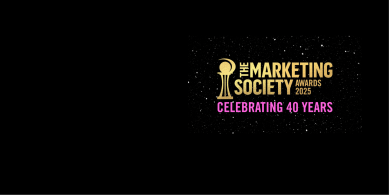For the third and final installment of our controversial advertising series, we’ll focus on the use of religion in marketing and advertising campaigns.
Religion is an increasingly sensitive topic and now, thanks to the increased diffusion of campaigns on digital channels such as social media networks, the risks of drawing negative attention to your brand are even higher. But despite this fact, many advertisers see it as a risk worth taking, as their campaigns are sure to stand out, leading to higher impact – whether negative or positive.
This is the case for Benetton, which has released many controversial adverts, including several dealing with religion – like the Kissing Pope, part of the ‘Unhate’ campaign released in 2011. The global campaign resulted in the brand making it to the top five trending topics worldwide on both Twitter and Google. From a followers’ perspective, Benetton Facebook fan numbers increased by 60% and the brand enjoyed extensive media coverage, with more than 3,000 articles published and over 600 television reports emerging from 60 countries.
In spite of being widely criticised for their choice, advertisers and agencies continue to use the topic of religion, as proven by the following campaigns.
May 2018: Zain trods on dangerous ground (again)
Ahead of Ramadan, Zain – a Kuwaiti mobile and data services operator – released a spot of , a young boy alongside dopplegangers of world leaders, including Donald Trump, Justin Trudeau and Kim Jong-un. The young boy wishes them ‘Ramadan Kareem’ – the traditional greeting during this period – and begins to sing. As the storyline progresses, the song gets more upsetting, speaking of religious persecution and depicting scenes of Muslim refugees.
Since it first aired, the nearly four-minute long video has gone viral (at the time of writing this article it had gathered more than 12 million views on the company’s official YouTube channel) and stirred debate among social media users around the world – and especially in the Middle-East. Many criticised the telco company for painting a disparaging image of Muslims and trying to capitalise on the situation at hand, while others praised the bold initiative, saying the company put the spotlight on an important humanitarian crisis.
This is not the first time Zain Kuwait has come under fire for a controversial commercial. As recently as last year, the company released yet another Ramadan campaign following a fictional suicide-bomber preparing an attack, alongside several scenes featuring genuine attack survivors. At the time, many questioned the company’s choice to depict images of violence to celebrate a holy month.
September 2017: Australian Hindus have a (lamb) bone to pick with the MLA
In September 2017, Meat & Livestock Australia (MLA) released an advert promoting lamb consumption in the country. Dubbed, ‘You Never Lamb Alone’ the video featured deities, prophets and messiahs all sitting at the same table and sharing a meal.
Aimed at depicting unity among religions from all walks of life, the campaign sparked controversy as Lord Ganesha – the Hindu god – was featured in a video promoting meat consumption, even though the deity is vegetarian.
In addition to people taking to social media to criticise the ad, more official complaints were lodged by the Consulate General of India in Sydney and the High Commission of India, calling it offensive. Despite these official complaints, the Advertising Standards Bureau did not order the MLA to take the ad down, stating that the advert was positively depicting inclusion.
It was only in November 2017, following an appeal and an independent review, that the ad was eventually banned by the ASBmuch to the disappointment of the MLA.
February 2018: Team Toyota
To celebrate Super Bowl LII, Toyota released a series of three videos that were broadcast ahead and during the finale. Entitled ‘One Team’, the last ad of the series featured a group of friends – a priest, a rabbi, an imam and a Buddhist monk – going to a football game together.
The spot ends with the caption: ‘We’re all one team’ and also displays the symbols for the Olympic and Paralympic Games next to the American flag.
The ad aimed to deliver a message of togetherness, unity, friendship and diversity. It is also important to mention that in addition to being released during the finale’s halftime, the footage tied into the brand’s marketing strategy for the 2018 Winter Olympics. Toyota was a worldwide partner for the event and the other spots of the campaign were actually more linked to the Winter Olympics.
Though liked by some, the ad received significantly lower results than the other ads in the series, which did not focus on religion. In fact, the brand’s other spot, “Good Odds” was the “Top Breakthrough Ad” of the year, according to the Ace Metrix, which measure the impact of video advertising.
The use of religion to advertise a brand, a product or a service may sometimes pay off, however it would be fair to say that caution should always be used. Using religion as a means to promote values of togetherness, or to ride the wave of religious events is a slippery slope for brands, as it is easy to offend an individual, a group of people or more broadly, a community.
Careful research and assessment must be undertaken ahead of campaign rollout to avoid any negative impact on a brand.
This is why some brands try to play it safe. For example, in 2017, German global discount supermarket chain Lidl chose to remove the crosses from the churches displayed on packaging for their Eridanous brand.
But even the best laid plans can backfire – Lidl received criticism on social media for its choice.
Suffice it to say that brands must have absolute certainty of their creative religious concept before releasing it.
After all, not all press it good press, especially in the age where one wrong step can make your brand go viral for all the wrong reasons.
By Creative Culture
Newsletter
Enjoy this? Get more.
Our monthly newsletter, The Edit, curates the very best of our latest content including articles, podcasts, video.
Become a member
Not a member yet?
Now it's time for you and your team to get involved. Get access to world-class events, exclusive publications, professional development, partner discounts and the chance to grow your network.




